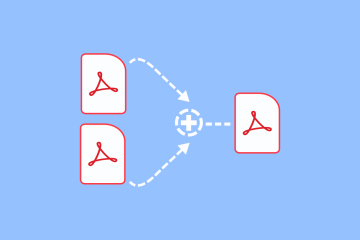In an era where technological advancements are reshaping the landscape of various industries, the financial services sector is no exception. Artificial Intelligence (AI) is becoming an integral part of financial operations, driving innovation, enhancing efficiency, and ensuring compliance. This comprehensive article delves into the transformative use cases of AI in financial services, with a particular focus on its critical role in due diligence processes.
What is Artificial Intelligence?
Artificial Intelligence refers to the development of computer systems that can perform tasks typically requiring human intelligence. This includes learning, reasoning, problem-solving, and understanding natural language. AI encompasses various technologies, including machine learning, natural language processing (NLP), and computer vision, allowing systems to analyze data, learn from patterns, and make informed decisions.
The Significance of AI in Financial Services
The financial services sector is characterized by vast amounts of data, regulatory requirements, and the need for rapid decision-making. AI technologies offer financial institutions the ability to automate processes, improve customer experiences, and enhance risk management. As such, the adoption of AI use cases in financial services is becoming a necessity rather than an option.
Key Use Cases of AI in Financial Services
1. Fraud Detection and Prevention
Real-Time Monitoring
AI-powered systems can analyze transaction data in real-time to identify suspicious patterns indicative of fraudulent activities. Machine learning algorithms are trained on historical transaction data to distinguish between normal and abnormal behavior, enabling timely intervention.
Anomaly Detection
Using anomaly detection algorithms, AI can identify deviations from expected behavior, flagging potentially fraudulent transactions for further investigation. This proactive approach helps financial institutions mitigate risks and protect customers from fraud.
2. Credit Scoring and Risk Assessment
Enhanced Credit Scoring Models
AI is revolutionizing credit scoring by utilizing alternative data sources, such as social media activity, online behavior, and transaction history, to assess creditworthiness. Traditional credit scoring methods often overlook valuable insights, leading to inaccurate assessments.
Risk Management
AI-driven risk assessment models analyze a multitude of factors, including economic trends and market conditions, to predict potential risks associated with lending. This enables financial institutions to make informed lending decisions and minimize defaults.
3. Customer Service and Support
AI-Powered Chatbots
AI chatbots are transforming customer service in financial institutions by providing instant support and assistance. These chatbots can handle a range of inquiries, from account balance requests to transaction history, allowing human agents to focus on more complex issues.
Personalized Recommendations
By analyzing customer data and behavior, AI can provide personalized product recommendations, enhancing customer satisfaction and engagement. For instance, AI can suggest investment opportunities or credit products tailored to individual preferences and financial situations.
4. Investment Management
Algorithmic Trading
AI-driven algorithmic trading systems utilize complex algorithms to analyze market data, execute trades, and optimize investment strategies. These systems can react to market changes within milliseconds, maximizing returns for investors.
Portfolio Management
AI technologies enable automated portfolio management, where algorithms analyze market conditions and asset performance to make informed investment decisions. This approach helps investors maintain diversified portfolios while minimizing risks.
5. Regulatory Compliance
Automated Reporting
Financial institutions face stringent regulatory requirements that necessitate accurate reporting and compliance. AI systems can automate the data collection and reporting process, reducing the burden on compliance teams and minimizing the risk of errors.
KYC and AML Compliance
AI enhances Know Your Customer (KYC) and Anti-Money Laundering (AML) compliance by analyzing customer data and transaction patterns. This enables financial institutions to identify suspicious activities and ensure compliance with regulatory standards.
6. Due Diligence in Financial Transactions
Understanding Due Diligence
Due diligence refers to the comprehensive appraisal of a business or individual before entering into a financial transaction or agreement. It involves assessing risks, verifying information, and ensuring compliance with legal requirements.
The Role of AI in Due Diligence
AI significantly enhances the due diligence process by automating data collection, analysis, and reporting. By leveraging AI technologies, financial institutions can streamline due diligence, reduce costs, and improve accuracy.
AI for Due Diligence in Financial Services
1. Data Extraction and Analysis
Automating Data Collection
AI for due diligence can automate the data collection process by scraping information from various sources, including public records, financial statements, and social media. This automation reduces the time and effort required for manual data gathering.
Natural Language Processing
Natural Language Processing (NLP) technologies enable AI systems to analyze unstructured data, such as contracts, emails, and reports. By extracting relevant information and summarizing key points, AI enhances the due diligence process.
2. Risk Assessment and Management
Predictive Analytics
AI-driven predictive analytics models assess potential risks associated with financial transactions by analyzing historical data and identifying patterns. This allows financial institutions to anticipate and mitigate risks before they materialize.
Scenario Analysis
AI technologies can simulate various scenarios to assess the potential impact of different outcomes on financial transactions. This scenario analysis provides valuable insights for decision-makers during the due diligence process.
3. Compliance and Regulatory Checks
Automated Compliance Checks
AI can automate compliance checks by cross-referencing collected data against regulatory requirements. This ensures that financial institutions meet legal standards, reducing the risk of penalties and reputational damage.
Continuous Monitoring
AI systems provide continuous monitoring of financial transactions, ensuring compliance with regulations and identifying any deviations in real-time. This proactive approach enhances risk management and regulatory adherence.
4. Enhanced Decision-Making
Data-Driven Insights
AI technologies provide decision-makers with data-driven insights by analyzing vast datasets and presenting relevant information in a digestible format. This empowers financial institutions to make informed decisions during the due diligence process.
Improved Accuracy
By minimizing human error and bias in data analysis, AI enhances the accuracy of due diligence assessments. This leads to more reliable decision-making and reduces the likelihood of costly mistakes.
Challenges in Implementing AI in Financial Services
1. Data Privacy and Security
As financial institutions handle sensitive customer data, ensuring data privacy and security is paramount. Implementing AI solutions requires robust security measures to protect against data breaches and cyber threats.
2. Integration with Legacy Systems
Many financial institutions rely on legacy systems that may not be compatible with modern AI technologies. Integrating AI solutions with existing infrastructure can pose challenges and require significant investment.
3. Regulatory Compliance
The rapid adoption of AI in financial services raises regulatory concerns. Financial institutions must ensure that AI systems comply with existing regulations, which can vary across jurisdictions.
4. Resistance to Change
Employees may resist adopting AI technologies due to fears of job displacement or the complexity of new systems. Financial institutions must address these concerns through training and communication.
The Future of AI in Financial Services
1. Continuous Innovation
As AI technology continues to evolve, its applications in financial services will expand. Financial institutions must stay abreast of advancements and explore new opportunities for integrating AI into their operations.
2. Enhanced Customer Experiences
AI will play a crucial role in enhancing customer experiences by providing personalized services, improving response times, and offering tailored financial products. This focus on customer-centricity will drive loyalty and engagement.
3. Ethical Considerations
As AI becomes more prevalent in financial services, ethical considerations will gain importance. Financial institutions must prioritize transparency, fairness, and accountability in their AI practices to build trust with customers.
4. Collaboration and Partnerships
Collaboration between financial institutions, technology providers, and regulators will be essential for successful AI implementation. By working together, stakeholders can address challenges, share best practices, and drive innovation in the sector.
Conclusion
Artificial Intelligence is transforming the financial services sector by enhancing operational efficiency, improving customer experiences, and streamlining due diligence processes. The integration of AI technologies enables financial institutions to harness data-driven insights, automate tasks, and manage risks more effectively.
As AI continues to evolve, its role in financial services will only become more significant. By embracing AI, financial institutions can position themselves for success in an increasingly competitive landscape. The future of financial services lies in leveraging AI to drive innovation, improve decision-making, and enhance overall performance.




